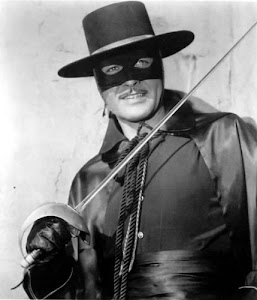Blogs started in the 90s as an online place for computer geeks to talk programming code with other computer geeks. The word comes from the phrase web log, or blog for short. As time went by others discovered blogging and started talking about other things--things normal people actually care about. On 9/11 much information was disseminated by bloggers via their own personal blogs. In 2002 the mainstream media only gave cursory attention to Trent Lott's questionable comment at Strom Thurmand's 100th birthday party. It was bloggers that spread the word, and fifteen days after his initial comment, Lott resigned his role as Republican Leader. In the 2004 presidential election, CBS News Anchor Dan Rather ran a story about President Bush not fulfilling his National Guard duty. In the ensuing days, bloggers questioned the authenticity of the evidentiary documents--questions CBS couldn't answer. Twelve days after the report aired, CBS retracted it, saying the network shouldn't have used those documents as they could not coroborate their authenticity. Shortly after George W. Bush won reelection, Dan Rather announced his retirement. [1]
Whereas only techies and other geeks had even heard of blogging, even into the new century, in 2004 the editors of Merriam-Webster announced blog was their "top word of 2004."
Blogs are an incredible communication tool for churches and pastors. Whereas most of the time someone has to actually attend a church service to get a copy of the bulletin, anyone with Internet access (before long this will mean just plain anyone) can log on and instantly know what's happening. Bulletins come out only once a week, but blogs can be updated several times a day if needed. What's more, blog technology is absolutely free. Sure, you can pay for blog services and software, but you don't have to. Blogger (www.blogspot.com) is the service I use, and it allows me to do everything I want to do with my blog.
Blogs are great for families separated by time and distance. Imagine being able to upload pictures of your baby's first visit to the zoo, and that evening Grandma and Grandpa seeing their precious grandbaby laughing at the elephant. And then the baby's grandparents can give immediate feedback via the comments tool at the bottom of the post. Or, if it's a true family blog they could make their own post and upload their own pictures.
Blogs are great for businesses, teachers, political campaigns (Howard Dean's blog fueled his 2004 bid for the Democrat presidential nomination, and whether or not Fred Thompson gets in the race this year as expected, he has already launched his blog: I'm With Fred.), or anyone else needing a platform from which to communicate ideas and convictions.
But the question was, "Why do I blog?" The answer comes in a couple parts. 1) I blog to better the preaching experience. A classic explanation of preaching is: First, tell them what you're going to tell them; second, tell them; and third, tell them what you told them. My blog sometimes allows me to share a preview of what's coming Sunday. Other times I might have a you should have said moment. In the past there wasn't really anything I could do about those you should have said moments. Now I can blog about it. And what's great is that those who don't really want to go any deeper don't have to, but those who do can.
2) I blog to better church communication. This is a great forum where I can talk about what's happening in the church, what's already happened, or what needs to happen. Sometimes people ask me questions, and I wonder, "If one person is asking, could other people be wondering the same thing?" I can address the issue in my blog, and even those who didn't voice the question can read the discussion.
3) I blog to be more transparent. Many people only know what they see on Sunday morning, nothing more. Hopefully I'm the same person through the week as I am on stage, but come on; I only have 30+ minutes on Sunday. I don't have time to come clean about every struggle I'm facing (pastors sometimes have doubts and frustrations, too), about my thought processes that led me to preach what I did (no, God does not write my sermons), or about whatever else happened in the 166 hours since we were together last. My blog helps you know me better, with anything from a theological discussion, to pictures from a family vacation, to rants and raves about my favorite TV show.
4) Finally, I blog as a spiritual discipline. I believe in journaling, which I've been doing off and on for the last few years. This year, I've transitioned some of my journaling to blogging. In effect, I'm taking my journal (at least part of it) public. Some of what I write is only for me, but if I'm wrestling with it, I share it with you.
[1] Brian Bailey, The Blogging Church (San Francisco: Wiley and Sons, 2007), 3ff.
Subscribe to:
Post Comments (Atom)




No comments:
Post a Comment